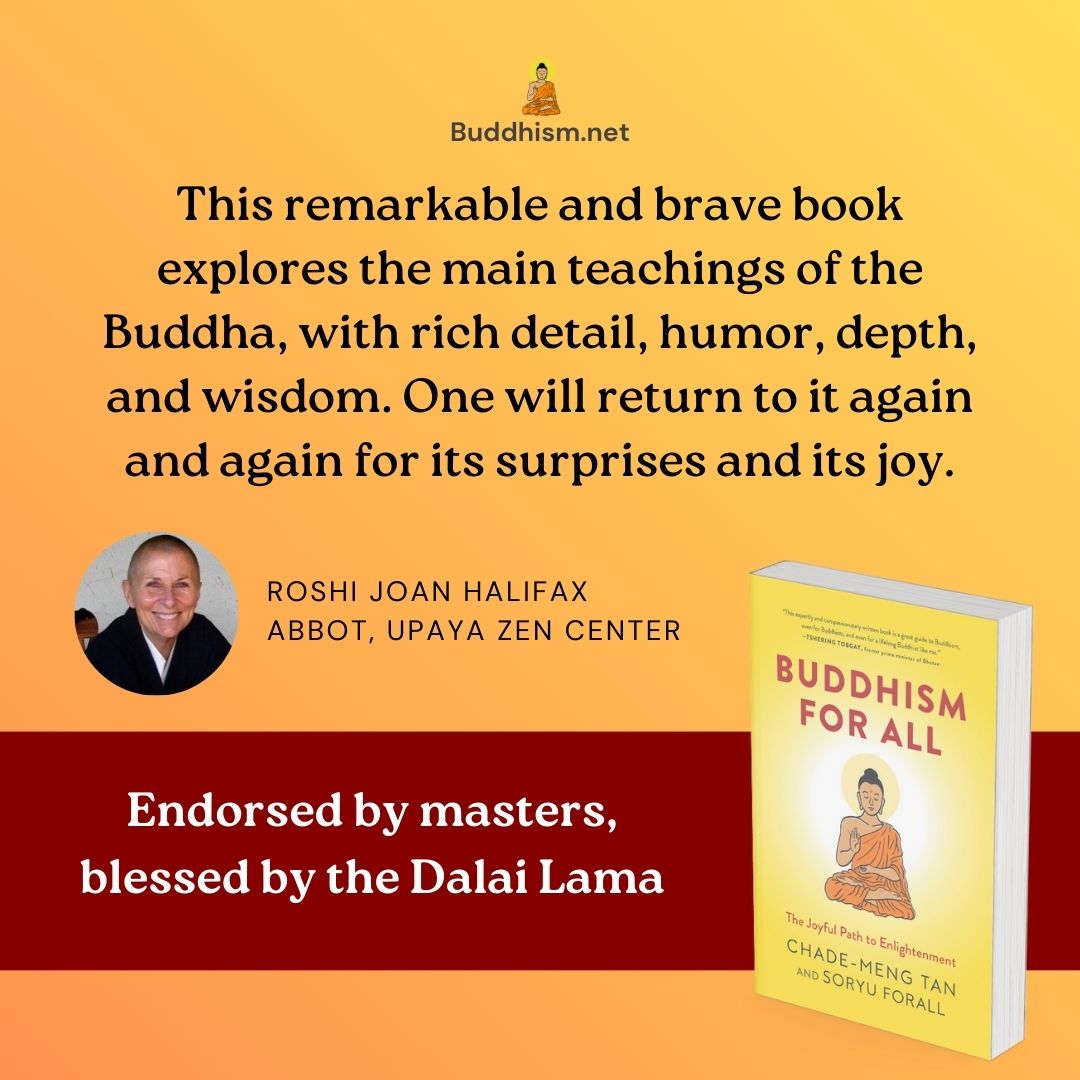The Buddha was said to be “ever smiling”, and his disciples said to be “joyful and elated, jubilant and exultant, enjoying the spiritual life, with faculties pleased, free from anxiety, serene, and peaceful.”[1]
The same appears to be true of modern-day Buddhist masters. One beautiful quality I observed in them is is that they carry a certain lightness in their being. The Dalai Lama, for example, has a great sense of humor. In public speeches, he would often tell jokes and make playful comments. Buddhist teacher Ajahn Brahm is often even funnier, having a tendency to make the audience roar into laughter. In contrast, the late Vietnamese Zen Master Thich Nhat Hanh seldom joked, he carried himself with a calm, no-nonsense dignity, but even in him, that quality of lightness was so abundantly obvious, it felt as if you could always see his inner smile.
 |  |  |
The most amazing thing about the path taught by the Buddha is that it is joyful. You might expect a profound spiritual practice to contain nothing but pain, struggle and sacrifice. Instead, joy is deeply embedded and prominently featured, at multiple places, on the Buddhist path. It begins with the practice of virtue that gains us the “bliss of blamelessness”, and includes the highly sustainable joy of a calm and clear mind, the peaceful joy of the present moment, the uplifting joy of kindness and compassion, the delicious joy of being free from agitation, want and hatred, the rapturously powerful meditative joys, and it culminates in the supreme bliss of gaining complete freedom from all suffering.
In Buddhism for All, you will find how joyful the practice of Buddhism can be.
I myself am intimately familiar with the deeply joyful aspect of Buddhism because of how Buddhism saved my life. With the practice of Buddhist meditation, I went from being miserable and suicidal to becoming one who smiles aplenty. The most life-changing thing for me was the ability to experience gentle joy with absolutely nothing happening at all, which is why I spend a lot of time smiling at absolutely nothing. The change was so profound I went on to become the guy holding the job title of “Jolly Good Fellow” at Google (and yes, like many things in my career, that job title started as a joke).

In case you wonder why this series is so drenched with lightness and humor, this is where it’s coming from. In writing about Buddhism, Soryu and I understand we are talking about serious and important topics such as the teachings of the Buddha, the suffering of countless living beings, and the great matter of life and death. Given the seriousness, we approached our writing with the great care that it deserves. For me, that means I put myself in a gentle meditative state when I write, and that meditative state is always joyful for me. That warm glow plus my sense of humor makes for a dangerous combination: I often end up writing pages drenched in lightness, and punctuated with jokes, and worse, puns.
I hope the happy side-effect is we ended up with content that is not just important to read, but also fun to read. I like to think that: if something is no laughing matter, I probably did it wrong.
Activities
References
[1] Walpola Rahula, What the Buddha Taught. Grove Press (1974).

